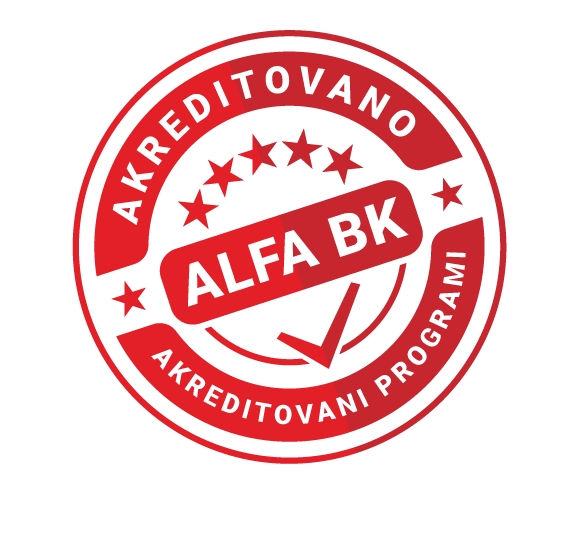INFORMATION AND COMMUNICATION TECHNOLOGIES
SCIENTIFIC, PROFESSIONAL OR ART SPHERE:
Information and Communication Technologies
TRAINING FORM:
Doctoral program
SCOPE OF TRAINING EXPRESSED IN ESPB POINTS:
180
NAME OF THE SPECIALTY:
Doctor of Sciences in Electrical Technology and Computing Equipment
TRAINING PROGRAM DURATION:
3 year (6 semesters)
The general goal of the accredited doctoral training program in information and communication technologies consists in development of science, critical thinking and educational training of specialists able to independently conduct original and scientifically significant studies in the field of information systems and technologies, development of new procedures contributing to general development of the society, as well as critical assessment of studies conducted by other persons. The goal is based on the requirement for specialists with higher education degrees trained to conduct original and scientifically significant studies in the field of information and communication systems and technologies.
After completion of the accredited doctoral program, the doctoral students are awarded the degree of the Doctor of Sciences in Electrical Technology and Computing Equipment. The training process results in gaining knowledge that allows students to be able to independently conduct science and research work in the field of information systems and technologies.
Academic doctoral training under the Information and Communication Technologies program includes integration of mandatory and optional study subjects. This structure of the training program allows doctoral students to choose the required direction in accordance with their own interest, as well as choose the theme of the entry work for preparation of the doctoral thesis and the thesis itself. The doctoral program is rewarded with 180 ESPB points.
The doctoral program allows students to acquire relevant knowledge in the field of information and communication systems and technologies, as well as the necessary intellectual and practical skills and competences in order to:
- independently set and solve practical and theoretic tasks in the field of information and communication systems and technologies, organize and carry out developments and scientific studies,
- take part in implementation of international scientific projects,
- carry out development of new procedures within the framework of modern information systems and understand, critically assess and use newest scientifically proven knowledge in the relevant field of science,
- think critically, act in a creative and independent way,
- respect the principles of ethical code of scientific community and proper ethical practice,
- communicate in a professional manner when presenting results of scientific research,
- contribute to development of science of information systems and technologies, as well as science in general, the practice of economic organizations and institutions and development of information systems and technologies in general,
- report on the results of scientific studies, present them at scientific meetings with relevant evidence, publish them in scientific journals and support them with patents and new software solutions.
The training program is in accordance with the modern science trends and the state of information-related professions and is comparable to similar programs offered by foreign higher education institutions.
Design of the Information and Communication Technologies training program is aimed at achieving all goals and tasks. The Information and Communication Technologies training program, conceived in such a way, is complete and exhaustive and provides students with advanced scientific and professional knowledge in this field, as well as monitors latest scientific achievements.
STUDY SUBJECTS
Methodology of Scientific and Research Work – 10
Advanced Information Systems – 10
Data Transfer Theory – 10
Optional Subject 1 – 10
Optional Subject 2 – 10
Optional Subject 3 – 10
Total: 60
Optional Subject 4 – 10
Optional Subject 5 – 10
Optional Subject 6 – 10
Scientific and Research Work in Development
of Introductory Paper to the Doctoral Thesis
Development and Defense of the Introductory Paper
to the Doctoral Thesis – 30
Total: 60
Doctor’s thesis
(scientific and research work)
Doctor’s thesis
(development and defense of the doctoral thesis) 60
Total: 60
Optional subjects
Advanced Wireless Computer Networks – 10
Modeling of Intelligent Wireless Networks – 10
Computer System Security – 10
Principles of Designing Interactive Multimedia Systems – 10
Architectures of Open Distribution Systems – 10
Modeling and Object-Oriented Design Using UML – 10
Modeling of Business Processes – 10
Security Coding – 10
Satellite Communication Systems – 10
Digital Signal Processing – 10
Digital Image Processing – 10
Network Programming Algorithms – 10
Stochastic Simulation in Computer Applications – 10
Theory of Telecommunication Transport Network – 10
Modern Radio Communication Systems – 10
Multimedia Signal Processing – 10
Information Management Systems – 10
Software in Technical and Technology Sciences – 10
Quality Management and Information Systems – 10
Information Theory and Own Coding – 10
Digital Communications in Damped Channel – 10





